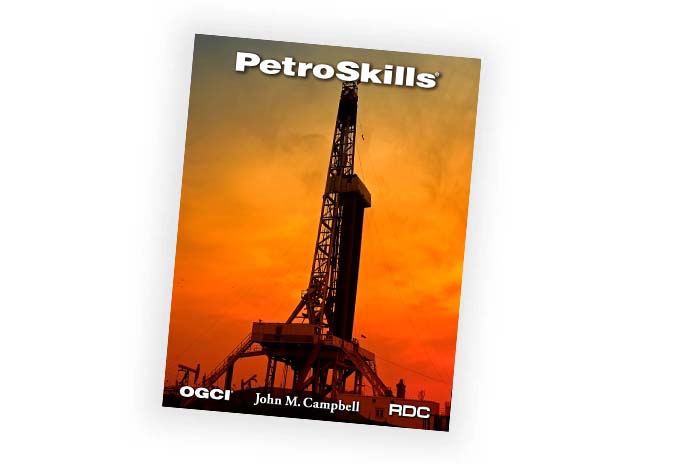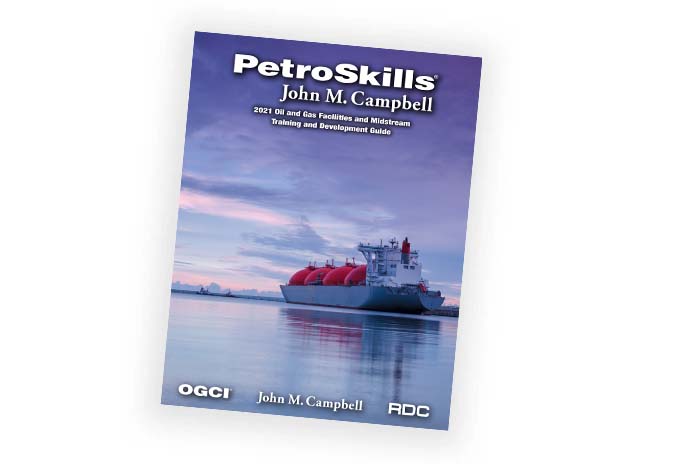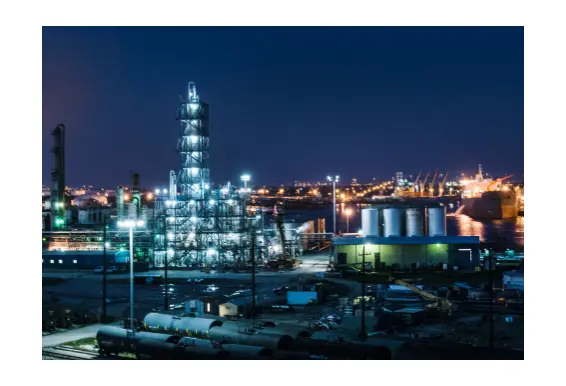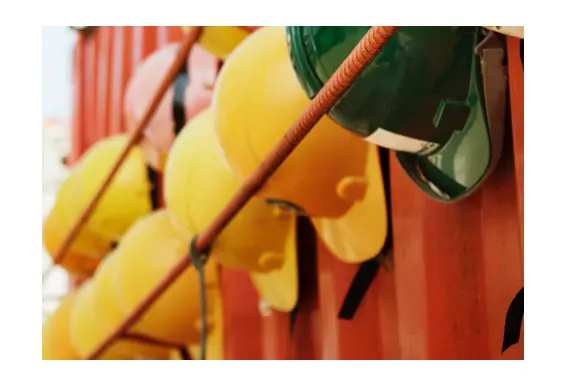Centrifugal Pumps Fundamentals for Facilities Engineers- Virtual, Blended Short Course
About the Course
This short course is from the industry-standard Gas Conditioning and Process course (G-4), known globally as the Campbell Gas Course. Each session will follow the format below:
Days 1-2:
- 1.5 hours prerequisite e-Learning modules (participants may test out)
- 2.5 hours required e-Learning modules
Day 3:
- 2 hours virtual, instructor-led session, 9:00-11:00 CST (GMT-6)
- 1.5 hours e-Learning and problem assignments
Day 4:
- 2 hours virtual, instructor-led session, 9:00-11:00 CST (GMT-6)
Click here to see the full G-4 Short Course listing
Centrifugal pumps are the most common type of pump in oil and gas processing. Pumps are an integral component in processing, and are required to ensure adequate liquid flow to downstream units. Inadequate pump capacity can significantly impair the capacity of an oil and gas production facility and impact the effectiveness of downstream processing units.
This course covers not only the basics of pumps, but also covers the fundamental aspects of centrifugal pump selection and operation. The content sets the foundation for a successful study of the practical application of centrifugal pump analysis. The self-paced study starts with:
- Pump applications, types, and selection
- Head vs pressure rise and pump power requirements
- Centrifugal vs positive displacement pumps
- Cavitation, NPSHR, and NPSHA
- Principles of centrifugal pump operations
- Principles of positive displacement pump operations
- Principles of plunger pump operations
- Rotating equipment drivers
This short course will prepare the participant to confidently select centrifugal pumps for different process operating conditions and troubleshoot current pumps operating out in the field from a process performance perspective.
The modules above will prepare participants for a review of the centrifugal pump analysis and selection. During the virtual instructor-led session, you will learn how to determine the required pump head, NPSHR, and NPSHA for a given pump application. We will review how to develop process system hydraulic curves based upon the flowing conditions and facilities layout, and apply the process system curve with the pump curve to determine optimal pump selection. In addition, pump process control options will be discussed.
The virtual, instructor-led lectur is sollowed by two centrifugal pump assignments (case studies), where delegates apply the analysis methods reviewed during the lecture. The problem assignements will be debriefed in detail, giving additional practical insights into pump selection and operation from a process requirement perspective. The round table discussion will explore common operating problems and potential pump damage for off-design pump operations. Troubleshooting and potential solutions to pump operating problems will also be discussed. Participants will have the opportunity to share their experiences and ask specific application questions.
Prerequisites, which participants can test out of, cover Gas and Liquid Physical Properties, Multicomponent Phase Behavior, and Fundamental
Applications of Phase Envelopes.
"I really enjoyed the format of the course. The prerequisites allow you to work through the material at your own pace before." - Graduate Engineer, United States
"I felt the course was of a high quality and provided a good overview of the fundamentals of centrifugal pumps. The online portal was set up well and easy to use, and Kindra is a great instructor." - Rotating Equipment Engineer, United States
Target Audience
Production and processing personnel involved with natural gas and associated liquids, to acquaint or reacquaint themselves with gas conditioning and processing unit operations.
This course is for facilities engineers, process engineers, senior operations personnel, field supervisors, and engineers who select, design, install, evaluate, or operate gas processing plants and related facilities.
These short courses are ideal for mid-career professionals that have experience in the industry and have been transferred to a new role or assignment.
They are also ideal for new engineers that need to get up to speed quickly on the primary principles of gas processing with a deep dive on the issues of the short course topics.
You Will Learn
You will learn how to:
- Identify types of pumps and their common applications
- Define NPSHR and NPSHA
- Principle of operation of centrifugal and positive displacement pumps
- Estimate pump head, power, and NPSHA for a given application
- Utilize a system curve and pump curve to determine proper pump selection
- Common operating problems and damage from operating at off-design pump conditions
- Driver options and considerations for pumps and compressors
Course Content
- Pump Applications, Types and Selection
- Head vs Pressure Rise and Pump Power Requirements
- Centrifugal Pumps vs Positive Displacement Pumps
- Cavitation, NPSHR, NPSHA
- Principles of Centrifugal Pump Operations
- Principles of Plunger Pump Operations
- Rotating Equipment Drivers
- Fundamentals of Centrifugal Pumps Lecture
- Self-Directed Problem Assignment
- Problem Debrief and Experience Round Table
Product Details
Categories:
MidstreamDisciplines:
Gas ProcessingLevels:
FoundationProduct Type:
CourseFormats Available:
VirtualAdditional
Request a Public Session
If you are interested in a public session of this course, please click the button below to request it.
Request Public SessionIn-House Training
This course is also available upon request as a private, on-site seminar. Contact us for details and pricing.
Request In-House TrainingNeed Help
Contact us if you have additional questions about how to register for or attend this course.
Contact Us



